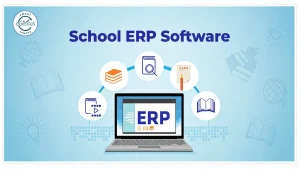Exams have always been a crucial part of the education system. However, the way they are conducted has evolved significantly over the years. With digital transformation reshaping education, many institutions are now comparing the Online Exam Management System with traditional exam methods to identify which approach best suits their needs.
Understanding Traditional Exam Management
Traditional exam management involves physical classrooms, pen-and-paper assessments, manual invigilation, and extensive administrative work. Although this method has been widely used for decades, it comes with limitations such as time consumption, logistical challenges, and human errors in evaluation.
What is an Online Exam Management System?
An Online Exam Management System is a digital platform designed to create, conduct, and evaluate exams seamlessly. From scheduling tests to generating instant results, it offers a complete solution for both educators and students. Moreover, features like remote proctoring, question banks, and analytics make the process highly efficient and transparent.
Online Exam Management System VS Traditional Exam Management System
1. Accessibility and Convenience
Traditional exams require students and faculty to be physically present at a specific location, which can be challenging in emergencies or for remote learners. On the other hand, the Online Exam Management Software allows students to take exams from anywhere, ensuring accessibility and flexibility.
2. Cost and Resource Efficiency
Conducting traditional exams involves expenses related to printing papers, invigilators, venue arrangements, and manual evaluations. Transitioning to an Online Exam Management Software significantly reduces these costs by digitizing the entire process. Institutions save on logistics while students save on travel expenses.
3. Security and Fairness
Traditional exams often face issues like paper leaks, impersonation, and manual errors in checking. In contrast, the Online Exam Management System ensures security through encrypted question papers, AI-enabled proctoring, and automated evaluations. This makes exams fairer and less prone to malpractice.
4. Evaluation and Feedback
Manual checking in traditional exams can take weeks, delaying results and feedback. With an Online Exam Management Software, results can be generated instantly with detailed performance analytics. This helps educators identify learning gaps while students get timely insights.
5. Scalability and Flexibility
Managing large-scale traditional exams is often difficult due to space and manpower constraints. However, an Online Exam Management System can easily scale to accommodate thousands of students simultaneously, making it suitable for schools, colleges, and even competitive exams.
Read our latest Article: 10 Problems Schools Can Solve Instantly with School ERP Software
Why Institutions Are Adopting Online Exam Management Systems
In the digital age, flexibility and efficiency are no longer optional—they are essential. Institutions are rapidly adopting the Online Exam Management Software to ensure uninterrupted assessments, reduce administrative burdens, and enhance student experience. Furthermore, the integration of advanced technologies such as AI and data analytics makes this system future-ready.
While traditional exams have their place in history, the future clearly leans toward digital transformation. The Online Exam Management Software not only addresses the shortcomings of traditional exams but also creates opportunities for innovation, scalability, and efficiency. By adopting this system, institutions can provide a seamless, secure, and student-friendly assessment process.
FAQs
Q1: What is the main advantage of an Online Exam Management System?
The primary advantage is convenience, as students can take exams from anywhere, and educators can automate scheduling, evaluation, and result generation.
Q2: Are online exams secure?
Yes. Advanced features such as encrypted question papers, AI-based monitoring, and secure logins ensure that the exam process is safe and fair.
Q3: Can online exam systems handle large-scale assessments?
Absolutely. An Online Exam Management System is highly scalable and can conduct exams for thousands of students simultaneously.
Q4: Does it reduce costs compared to traditional exams?
Yes, it eliminates printing, logistics, and manual checking costs, making it far more cost-efficient for institutions.
Q5: Will traditional exams disappear completely?
Not entirely. Some institutions may still prefer traditional methods for specific needs, but the Online Exam Management System will dominate due to its efficiency and flexibility.















